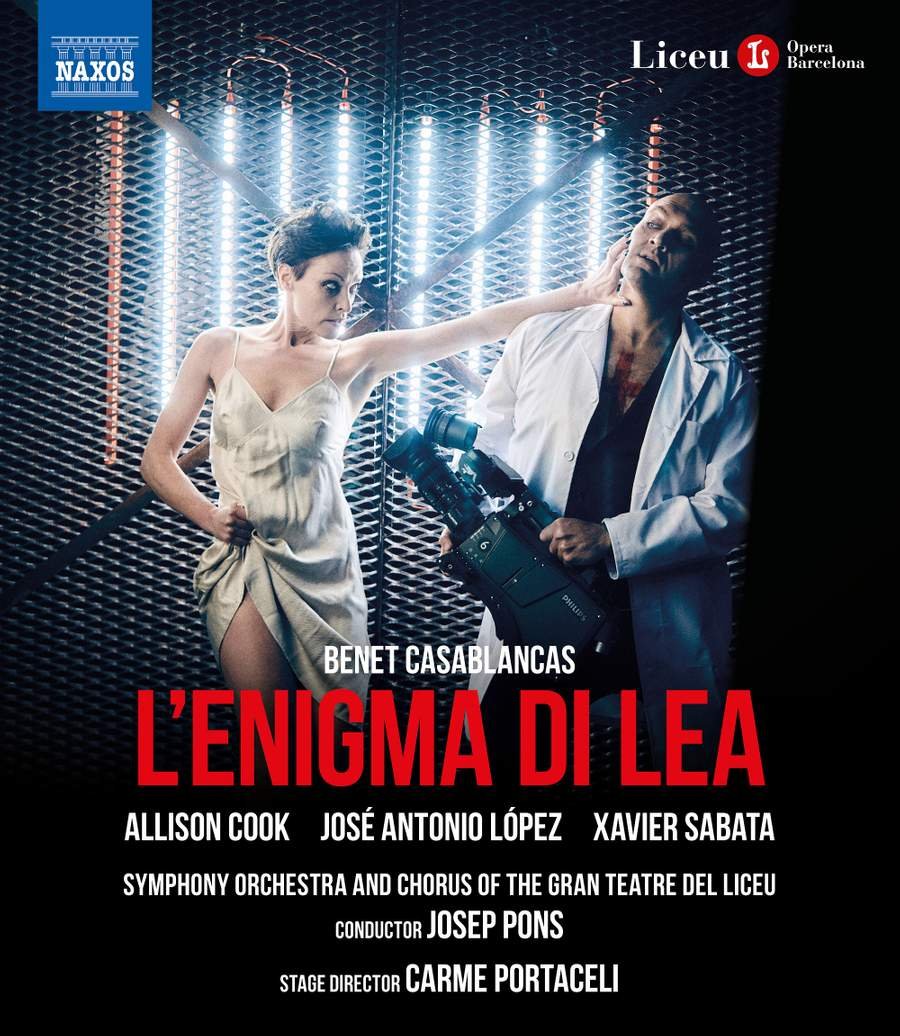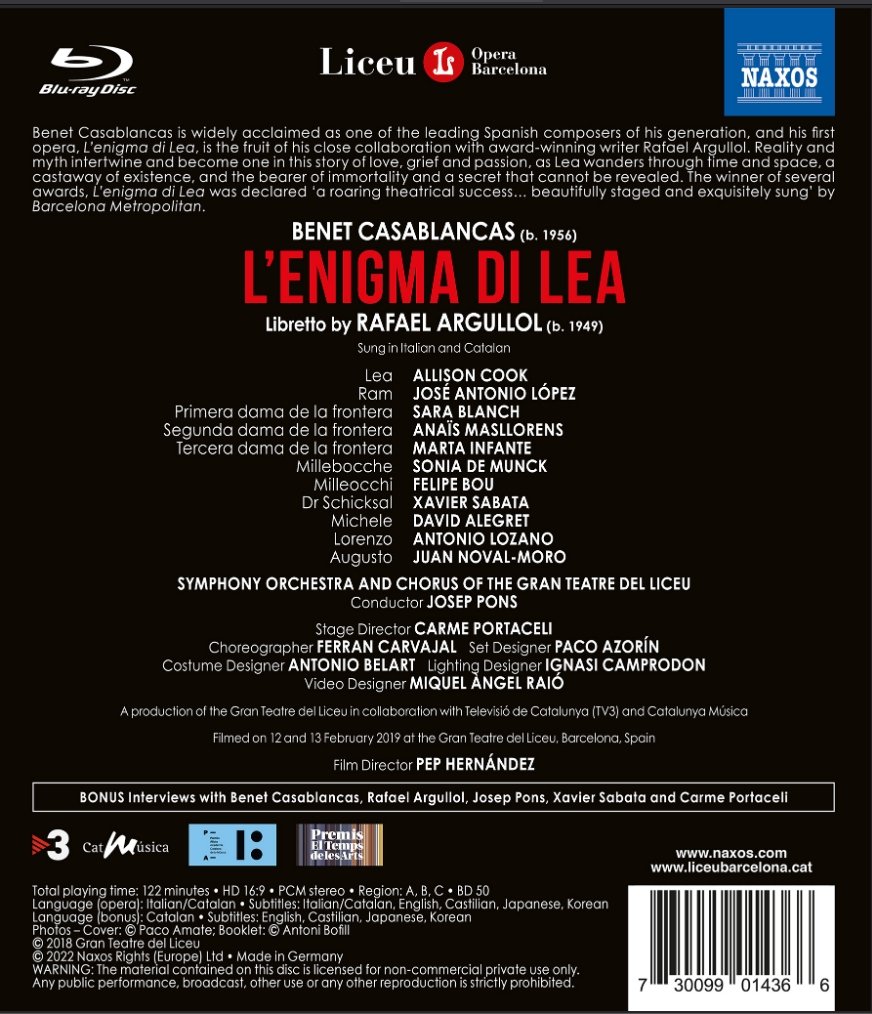

Benet Casablancas L’Enigma di Lea opera to a libretto by Rafael Argullol. Directed 2019 by Carme Portaceli at the Gran Teatre del Liceu in Barcelona. Stars Allison Cook (Lea), José Antonio López (Ram), Sara Blanch (Primera dama de la frontera), Anaïs Masllorens (Segunda dama de la frontera), Marta Infante (Tercera dama de la frontera), Sonia de Munck (Millebocche), Felipe Bou (Milleocchi), Xavier Sabata (Dr. Schicksal), David Alegret (Michele), Antonio Lozano (Lorenzo), and Juan Noval-Moro (Augusto). Josep Pons conducts the Symphony Orchestra and Chorus of the Gran Teatre del Liceu. Choreography by Ferran Carvajal; set design by Paco Azorín; costume design by Antonio Belart; lighting design by Ignasi Camprodon; video design by Miquel Àngel Raió. Directed for TV by Pep Hernández. Sung in Italian and Catalan. Released 2022, disc has PCM stereo sound. Grade: NA
This title has stereo sound only. But I’m not excluding it since most newly-composed opera productions have modest budgets that can’t provide sound in the round. This all new work was a local effort of Teatre del Liceu. The libretto was originally in Catalan. But the leads sing in Italian, to make this easier to sell worldwide.
John on operaramblings.com reviewed the Blu-ray. He calls it “abstract, mythological, and symbolist.” It seems that Lea was raped by God and Ram was raped by the Devil. Both are poisoned by superior knowledge. Therefore both are condemned to drift alone through time and space aimlessly unable to relate to mere mortals. They get together in a madhouse run by Dr. Schicksal (means fate or destiny in German), and they both find new hope. As an opera maniac, John is used to these kind of stories and generally approves. Tim Ashley, writing in the April 2022 Gramophone at page 78, calls this a “prolix, portentous fable” and states, “I’m not sure it works, though some of it is perversely fascinating.”
Clive Paget finds middle ground on pages 54-55 of the June 2022 Opera News, stating that the theme of the opera is “to explore aspects of the human condition, in particular ideas of sexual liberation verses oppression societal mores.” He compares the score to “Berg’s bland of sumptuous harmonic dissonance.” And Paget approves all the singers enthusiastically. He concludes that L’Enigma “deserves a future life.”
Here’s a trailer from Naxos:
OR
